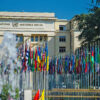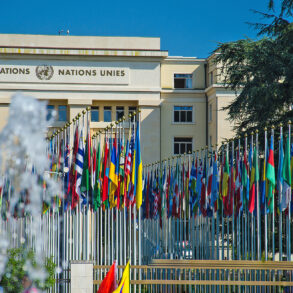What to do with social media and artificial intelligence. AI poses a challenge for Islamic education.
ISLAMIC TIMES – In the 20th century, it was the influence of ideologies that changed the presence of Muslims in the world. In this era, technological innovations fundamentally challenge the self-understanding of Islamic doctrine.
The task of politics and religions will be to develop convincing positions in the face of a technical revolution as quickly as possible.
Orientation in the thicket of challenges
The historian Yuval Noah Harari offers a guide in his new bestseller Nexus. In a brief history of information networks, he shows the fundamental importance of narratives that were written in books and are now circulating and being updated on the internet.
Artificial intelligence is the first technology that can change our understanding of history, making its own decisions and developing ideas autonomously. The dramatic constellations that are emerging on the horizon in this age are the subject of his book.
Harari’s starting point is to define the naive understanding of information, which sees the collection of information as a direct path to truth, wisdom and power. This includes the old promise of the internet to grant us access to unlimited knowledge.
A populist understanding of information sees the potential for spreading facts primarily as a way of implementing power options. The flow of information in late modernity has enabled mass democracy and mass totalitarianism.
Do we understand information?
The complex understanding of information recognises the necessary connection between truth and order, which relativises the power of all wisdom. The historian reminds us that ‘because order is more important to them than truth, human information networks have often produced a lot of power but little wisdom’. Information does not necessarily inform things. It forms them.
It is above all the algorithms of social networks that have fundamentally changed our political landscape. For Harari, the events in Burma in dealing with the Muslim minority of the Rohingya are an example of the destructive effect of attention control.
Negativity is influential
In 2018, a UN Commission of Inquiry concluded that Facebook played a decisive role in the ethnic cleansing campaign by spreading hateful content.
With the aim of increasing user loyalty, the network favoured negative messages. Through experiments on millions of users, the algorithms found that outrage created that very loyalty. The political consequences of this corporate philosophy are and have been disastrous.
It contributes to the creation of a new social system that promotes the basest instincts and prevents us from realising our full potential. And, it should be added, the principle of this unfathomable efficiency of negativity has long since found numerous imitators in competing print and online media.
At least at this level of danger, it is still humans themselves who write and control programmes, but also terminate them. The ban on automated users who disseminate masses of questionable information is a logical and realisable political demand.
Why is it not possible to demand that only real people, with corresponding responsibility, allow their opinions to flow into the information stream?
The solution to the problems arising from the application of artificial intelligence is much more complex and consists in making it more difficult for these systems to correct themselves. “An information network dominated by inorganic computers,” writes Harari, “would be different in a way we can hardly imagine.
It is not so much the autonomous robots of science fiction literature that should concern us here, but rather the subtle suppression of any possibility of human intervention”.
Artificial intelligence, for example, opens completely new dimensions of surveillance. In quantum mechanics, the act of observing subatomic particles changes their behaviour, and the same applies to the act of observing people. The more powerful the observation tools are, the greater their potential effect on our actions in a – supposedly – free society.
Dangers for democracy
Paradoxically, a certain inefficiency in surveillance is an advantage and not a disadvantage for the survival of democracy. To protect individual freedom and privacy, it is best if neither politics nor my employer knows everything about me. Under the conditions of the possibilities of artificial intelligence, this reality will become a distant prospect for citizens.
One of the biggest innovations resulting from the application of AI is undoubtedly its ability to recognise patterns when analysing gigantic amounts of data. Many technologies and systems, social conditions themselves, are becoming so complex that they can no longer be understood by an individual.
Even today, computer programmes decide on the creditworthiness of bank customers, invent new financial products, determine the sentences of criminals in the USA or enable the mass surveillance of the behaviour of passers-by with video cameras. The point here is that the users of this intelligence themselves can no longer explain how their computer, which produces the binding results, arrives at its results.
What do AI and social media mean for faith?
In the field of faith, equally breathtaking visions are emerging. Attractive and powerful religions could arise whose scriptures are written by AI. The new believers – in the sense of a complete separation of body and soul – thus enjoy the unlimited possibilities of a digital world, a kingdom of God that is potentially freed from the laws of biology and even physics. But the reality of established religions will not stand still either under the conditions of the computer world.
Today, a host of religious, “omniscient” influencers are already active in social networks, answering thousands of users’ questions and already far surpassing the influence of imams in mosque communities. These self-appointed religious teachers often embody a hyper-moral system of values and promote a populist understanding of information.
Will Muslims use artificial intelligence in the future to better understand their own religion? How religious communities will maintain their educational standards in the face of the challenges posed by the virtual world is an open question. One goal will be not to degrade philosophical knowledge and religious revelation to mere information. In this respect, Harari’s general approach is questionable.
In the context of practice, the publication by social psychologist Jonathan Haidt, Generation Angst, is compulsory reading for parents, educators and religious education teachers. In his view, the shift of young people’s energy and attention from the physical world to the virtual one has catastrophic consequences. Born between 1997 and 2012, Generation Z does not know a reality without the internet and smartphones.
A generation on the net
“The high proportion of children and young people who use social media, digital games and streaming services to an extent that endangers their health is worrying. In one in four families, parents express uncertainty and a need for support in guiding their children,” explains Prof. Dr. Rainer Thomasius from the University Medical Center Hamburg.
A recent study by the DAK health insurance company shows that more than six per cent of minors are now dependent on computer games and social media. According to the criteria of the World Health Organization (WHO), a media addict is someone who has lost control over their usage behaviour over a period of one year and withdraws from other areas of life.
In his study, Jonathan Haidt shows the full range of psychological problems, from depression to concentration disorders, that have taken hold of young people’s lives. He sees the modern educational model as being in a fundamental crisis.
On the one hand, children and young people are sheltered with the aim of protecting them from all real dangers and risks of everyday life. On the other hand, we pay too little attention to the abysses of the virtual world that they encounter with the help of their smartphones.
This ‘paranoid education’ is a consequence of the breakdown of solidarity among adults. The education of our children is increasingly becoming a private matter or a state task. “But if adults stay out of it and no longer support each other in raising children,” writes Haidt, “all parents are left to their own devices.”
For the scientist, the educational problem is a task that requires solidarity, with the aim of pushing back the influence of the virtual world, especially on young people. The long-term dangers of the transformation of young people into users and consumers are obvious: “Social media platforms are the most efficient conformity machines ever invented,” the author concludes.
In addition to specific demands for the protection of users regarding the network offerings, he sees a genuine counterweight in the practice of spirituality. Such teachings promote a counter-world to the realm of experience of social media.
At the centre of these existential experiences is neither fear nor a permanent flow of information, but trust. The dimension of reverence brings about neurophysiological changes, a lesser focus on the self and an increased sense of meaning.
The question is clear: Do real Muslim communities continue to convey such horizons of experience? The situation is serious. Arno Kleinebeckel describes it on Telepolis: “In the internet-based parallel worlds, the human condition of our youth is changing in a frightening way. The dazzling utopia of a gigantic void is their new home. A pixelated, de-realised home, one that creates the appearance of being, but in truth turns our children into phantoms.”











